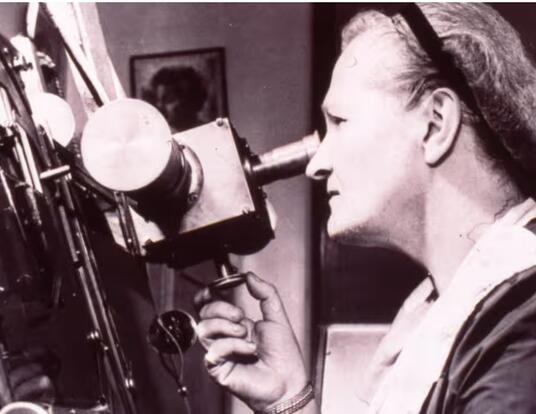Colloquy Podcast: Eating Disorders Can Be Lethal. We Don’t Treat Them That Way.

For many, the holiday season’s combination of festivities, family, and food makes this time of year joyous. If you're one of the nearly 29 million Americans who deal with an eating disorder at some point in your lifetime, though, the holidays can be hell—much like the rest of the year.
In this episode of the Colloquy podcast, Harvard Medical School Professor Anne Becker, PhD ’90, one of the country’s leading experts on eating disorders, talks about why the illnesses are so deadly, why they so often go undiagnosed, and what we can do to help friends or family members who may be suffering.
This transcript has been edited for clarity and correctness.
What do we mean when we talk about disordered eating? And what's the difference, if any, between that and a full-blown eating disorder?
The question of when disordered eating becomes an eating disorder is relative to what the norms are in local society. When we talk about behavior that is departing from social norms and causing distress and impairment, then we start to get into the domain of symptoms and signs of illness. And I will tell you that there are prevailing misconceptions even among clinicians who aren't specialized in this area.
One of the misconceptions is that people have to be thin to have an eating disorder. It is true that a key criterion for anorexia nervosa is low weight, but for bulimia nervosa, it is not one of the criteria. And in fact, most individuals with bulimia nervosa have normal weight or can be overweight. And with binge eating disorder, which is actually the most prevalent eating disorder in the US, people can be normal weight and they can be overweight, and they're certainly rarely underweight.
So, it is actually more the norm that individuals with an eating disorder will be normal or overweight. And that is one of the reasons that when they are, let's say, at their checkup for primary care, they may not be asked if they're having some concerns or issues around weight or eating, because it isn't necessarily apparent to observers, to their family, to their friends, to their doctor that they might be struggling with an eating disorder.
We hear all the time about binge drinking. What does binge eating look like?
Binge eating is diagnosed when an individual has at least one binge episode a week for a period of three months. In addition to that, there are associated symptoms with the binge episode. So, for example, somebody is eating more rapidly than normal or may be eating past the point of satiety.
Those episodes have to be associated with marked distress. It can't be that you like to eat; you eat a lot more than other people would eat, but it doesn't bother you. That would not be binge eating disorder. The way we define it clinically is that it's when an individual eats more than would be appropriate or normative in that particular context in a discrete period of time, which would be about two hours. And he or she, they feel a loss of control over the eating.
Many people say, well, okay, how is that different from Thanksgiving dinner that I had last week? And of course, the answer is, well, a Thanksgiving dinner has a particular context that many of us are socialized into where we're expected to eat a large amount of food, but it's normative at the table. It may be associated with distress for some people, but typically there are social rewards to gathering and feasting in that way.
In 2019, you and your colleague Dr. Dasha Nicholls wrote an editorial for the British Journal of Psychiatry that eating disorders, despite their prevalence, lethality, and devastating social and health consequences, remain marginalized and neglected in health care. There's been a greater focus on mental health in recent years, both on college campuses and in society at large here at Harvard. Why are eating disorders still marginalized?
Well, let me start with the editorial that you're referring to.
It is so concerning, so concerning to not just us, but our colleagues in the field and many others, many people who are actually caregivers for individuals with eating disorders that the disorders have been marginalized in policy, in research, in attention, in the health care sector. First of all, it doesn't make sense. And the reason it doesn't make sense is that eating disorders are among the most lethal psychiatric disorders. In fact, anorexia nervosa and bulimia nervosa are tied with substance use disorders as having the highest mortality rate of any psychiatric disorders. And they are prevalent in certain population years, which tend to be young adult transitional age, adult adolescent populations. And they are treatable.
So, here you have an illness that's treatable. It's identifiable. If it's not treated successfully, there are serious medical consequences. Really, I could name almost every organ system that can be affected by severe anorexia or severe bulimia nervosa. It's unfathomable why we wouldn't just elevate this as a priority for adolescent and young adult health, not just mental health, but health.
Eating disorders can be quite invisible. They can be invisible to the family caregivers. They cannot be invisible to health providers, even specialists. For a variety of reasons, individuals who are living with an eating disorder may choose not to disclose their symptoms. They may be ashamed. They may be afraid to have to give up their disorder. They may not trust that treatment is going to be successful. There are so many reasons that an eating disorder wouldn't come to light. And in fact, some studies have shown that up to 50 percent of individuals who present in a primary care setting with an eating disorder or have one are not detected as having an eating disorder.
The other issue is that, unfortunately, there is a prevailing clinical stereotype about who gets eating disorders. The stereotype is that it's generally a white woman who is an adolescent or young adult, and whereas that may have been true decades ago, that's certainly not true now because men and women get eating disorders. The data show that every single US Census group has pretty much, unfortunately, equal opportunity of having bulimia nervosa, for example. And yet the treatment utilization across major US ethnic groups actually shows that there are disparities in treatment access.
So, we have a problem with treatment access, but we do know that these disorders occur across genders, and across ethnicities, and, unfortunately, that information hasn't sufficiently permeated the sort of clinical response available.
Also, family peers often don't understand it either because they're holding on to the stereotype, which is a couple of decades old. And so, some individuals, when they're experiencing eating disorder symptoms, will actually seek care and will be turned away. They'll be told, oh no, that's not a problem that you would have.
Is another reason that eating disorders so often go undiagnosed that disordered eating is actually normalized in our culture? And if so, how does that play out?
The preoccupation with weight, with dieting, with eating in a healthful way is valorized. In some contexts, it's seen as positive, it's seen as self-care, it's seen as consistent with health goals. And yet when it becomes excessive, it can trigger or tip over into disordered eating and become highly distressing and consequential for an individual. And very unfortunately, there are so many stories that all of us in the field have heard where it all starts with a moment when someone lost weight. Sometimes it was intentional, sometimes it was a diet. And they start to get lots of positive reinforcement from their friends, their family. Hey, you look great. And that reinforcement is something that propels them into even more intensive efforts to either maintain the low weight or to continue to lose weight. And it happens in vulnerable individuals. But that is one way that an eating disorder can emerge from a diet culture.
Now, I recently saw a statistic. In 2019 over half of young women reported wanting to lose weight. Over half. I think it was maybe a pretty large percentage of young men as well, but not as high as that. When you think about it, these are people who are young, they're healthy, and presumably, they're pretty physically active. They may even be in the prime of their health, and they're already thinking about losing weight. And so, when you're looking at such a large percentage, the behavior itself or the attitude becomes normative.
In the piece that you and Nicholls wrote for the British Journal of Psychiatry, you laid out some pretty arresting statistics—this was for the United Kingdom—that up to 13 percent of people by 20 years of age have met diagnostic criteria for an eating disorder. Almost 41 percent of UK adolescent girls have some form of disordered eating behavior and that could be fasting or purging or binge eating. And then 11.3 percent of those were at a level compatible with an eating disorder diagnosis. Do we have a comparable problem in the United States?
There's no reason to believe that the prevalence of eating disorder symptoms is substantially different in the US than it is in the UK. We do collect data in different ways, and so when we talk about disordered eating, there's no standardized definition for what that means. But I will say that the prevalence that is mentioned in that article in the UK wouldn't at all seem out of range to me for the US, and one reason for that is many, many, many individuals who have a clinically significant eating disorder still don't meet criteria for one of those diagnoses. And so, they end up being diagnosed with something we call OSFED, other specified feeding and eating disorder. Prior to DSM five, we called it eating disorder not otherwise specified.
Do these illnesses typically affect females more than males? And do we have a sense of why that is?
Women are more at risk. That's true. But anyone can get an eating disorder. Anyone, any age. You know, this is the other stereotype that is quite a challenge, is that even though the onset of eating disorders for anorexia and bulimia tends to be in adolescence and transitional age adulthood, people can get an eating disorder in midlife, and it certainly can persist into later years.
So, it's good to understand sort of the basic epidemiology of these disorders and be attuned to when this might be really important to be surveilling. Like if your clinical practice is college-age women, you really want to be thinking about this, but you shouldn't not be thinking about it with other clinical populations.
In the 2018 issue of the journal Transcultural Psychiatry, you wrote about the changing footprint of eating disorders across geography and history. You also talked about the social contextual particularities of risk and presentation. You're an anthropologist as well as a psychiatrist. In fact, you got your PhD from GSAS in anthropology. How does a culturally sensitive approach enrich our understanding of eating disorders?
Let's start with the very flawed premise that eating disorders are not a problem in the Global South. That's the premise that my colleagues and I have wanted to challenge. And again, this is partly a problem of lack of data and is partly a problem of dated stereotypes, clinical stereotypes about who's at risk for a disorder.
If we look at the rest of the world, if we look at what's the percent increase in prevalence of eating disorders, we'll see that the areas of the world where it's increasing are in the Global South, in the Middle East and in Asia. So, we know that over time—we've seen it in our own social context—eating disorder prevalence changes. And so, our presumption that it was confined to cultures of modernity, sort of high-income regions has to be challenged at this point.
And why is that? Well, for starters, we know that we live in a globalized world and there are ideas, images, and values that circulate widely, especially among youth, especially as various regions come online and have access to this kind of information. So, whatever social forces drive behaviors, drive valuation of thinness, drive valuation of health, self-presentation of the body—whatever forces that are now widely circulating are widely available around the world. So, we have no reason to believe that other areas of the world will be immune from or protected from these disorders.
But what we do know is that very few ministries of health have this as a priority. We know that with, say, the World Health Organization's survey that is modeled on the CDC's (Center for Disease Control) survey, there is an option to ask about disordered eating behavior. And very few countries use that option. So, they don't generate data. And of course, if they don't have data, they don't know there's a problem. So, that is back to this kind of self-perpetuating stereotype.
We know that in other areas of the world—because norms around eating, mealtime, self-cultivation, and body ideals differ—the way that eating pathology manifests is going to look different. And we are not going to capture it well with the diagnostic criteria that we've developed in the US. One of my colleagues did a study to show that, of the papers that are published in high-impact psychiatric journals, only 6 percent of those papers cover regions of the world outside of the high-income regions. So, we are basing our data on a very, very narrow subset of the world's population.
I want to go from talking about the world to kind of bringing it back to the Harvard community. The University recently released a report on mental health at Harvard. What did it tell us, if anything, about the prevalence of eating disorders in this community? Do you see the same pattern of marginalization that you see in the larger society? And how ought we to be addressing the problem?
I read the report with great interest, especially looking at the relative prevalence of, remember, self-reported eating disorders. It was quite low. It was 3 percent, I believe, of students at the time of the survey had been diagnosed with an eating disorder. But remember, I've already told you that there are many, many people who have an eating disorder who haven't been diagnosed.
I also saw that about twice that number, twice that percentage had eating concerns. So, they were you know, they were sort of in that stage of, well, maybe there's something wrong. Should I get help? You know, we don't know where they were, but we know that it was an area of concern. Now, that is much lower than the numbers who self-reported anxiety and depression, but that isn't a surprise at all. Many of these disorders are comorbid with each other. And we want to think of mental health as a whole, not as a disorder in particular that gets stamped out.
I do think eating disorders are marginalized generally in clinical medicine, but I was really glad to see that there was some reporting of the prevalence of eating disorders. I wouldn't assume that all universities would even ask the question or would look for that.
Also, I'm aware of a peer counseling organization here on campus, which elevates the visibility of help resources for these disorders. And I think that's terrific, too, that that's being supported. So, what the report tells me is that this is a problem. It's a problem that is prevalent enough to take seriously, especially when we know it's treatable, especially when we know that these are disorders that, if not treated, can have serious medical consequences.
How can family, friends, and, maybe most of all, healthcare professionals do a better job of recognizing eating disorders and getting folks on a path to wellness?
It starts with clinician education and making sure that clinicians really understand and understand how to ask in a sensitive, empathic, non-judgmental way and can really work with someone to gain their trust and elicit information that is going to be helpful in formulating what's going on here. But it's also important for peers and family members to educate themselves if they have a feeling, if they're observing behavior, and they're just not sure. And they want to be supportive. They don't want to cross boundaries. They don't want to scare someone. It's really important that they inform themselves and know when it's important to speak up or say something supportive or to offer to help someone get the care that they need.
As I said at the beginning of the show, many folks listening are in the middle of the holiday season. It's a joyful time for some, but how might the combination of celebrations, food, and family dynamics be a challenge for those grappling with an eating disorder? And what are some ways they can safeguard their physical and mental well-being at this time of year?
Well, I'm so glad you asked that question. When we go through different seasons of the year, for different individuals, there may be a season that is challenging. For some people, it’s summer because they feel more exposed. But for many people, it is the winter holidays because of the gathering with family and the recapitulation of family meals and maybe some of the dynamics come up again for them. And then there's often an abundance of food. And it's food that many people are nostalgic about and enjoy. And it's also often very calorie-dense. And for some individuals, that could be triggering because they have associations with that food.
What I would say is that it's always helpful to anticipate what the challenges are going to be and not be surprised by them. If every year you're someone who goes home and it's stressful because there's so much food or because there are expectations, you get prepared for that situation. And maybe there are ways to signal to family what your preferences are or maybe you can set a limit or say, "By the way, I'm looking forward to coming home, and if it's okay with you, I'd like to do things this way." It’s great if people can say what their preferences are, but also great if people can allow themselves to be sort of non-judgmental about their own journey through the holidays and be an observer or be curious. What is it like this year? And be really gentle.
And look, it's not just about the food. It's not just about the meals, right? Because sometimes people go home and their family members haven't seen them in, I don't know, a semester, a couple of months. And sometimes they, to their parents, might be different. And it is very difficult for a parent to not spontaneously comment, "Gee, you look great. Gee, you cut your hair." And let's say that somebody has gained weight or lost weight. That may come up, right?
So, I think it's helpful for people to understand it isn't necessarily a bad thing. If it's a criticism, I hope that doesn't happen. But in some rare cases, people go home, and they've lost a great deal of weight, and that isn't something they felt comfortable discussing with their parents. And if that's the case, I really hope that somebody in the family will say, in a very caring way, You look like you've lost a lot of weight. Are you okay? What can I do? Let's talk about it. It can be very emotionally charged and obviously, no one wants to cross a line with someone. But it's never wrong to convey concern.
The Colloquy podcast is a conversation with scholars and thinkers from Harvard's PhD community on some of the most pressing challenges of our time—from global health to climate change, growth and development, the future of AI, and many others.
About the Show
Produced by GSAS Communications in collaboration with Harvard's Media Production Center, the Colloquy podcast continues and adds to the conversations found in Colloquy magazine. New episodes drop each month during the fall and spring terms.
Talk to Us
Have a comment or suggestion for a future episode of Colloquy? Drop us a line at gsaspod@fas.harvard.edu. And if you enjoy the program, please be sure to rate it on your preferred podcast platform so that others may find it as well.
Get the Latest Updates
Join Our Newsletter
Subscribe to Colloquy Podcast
Simplecast





